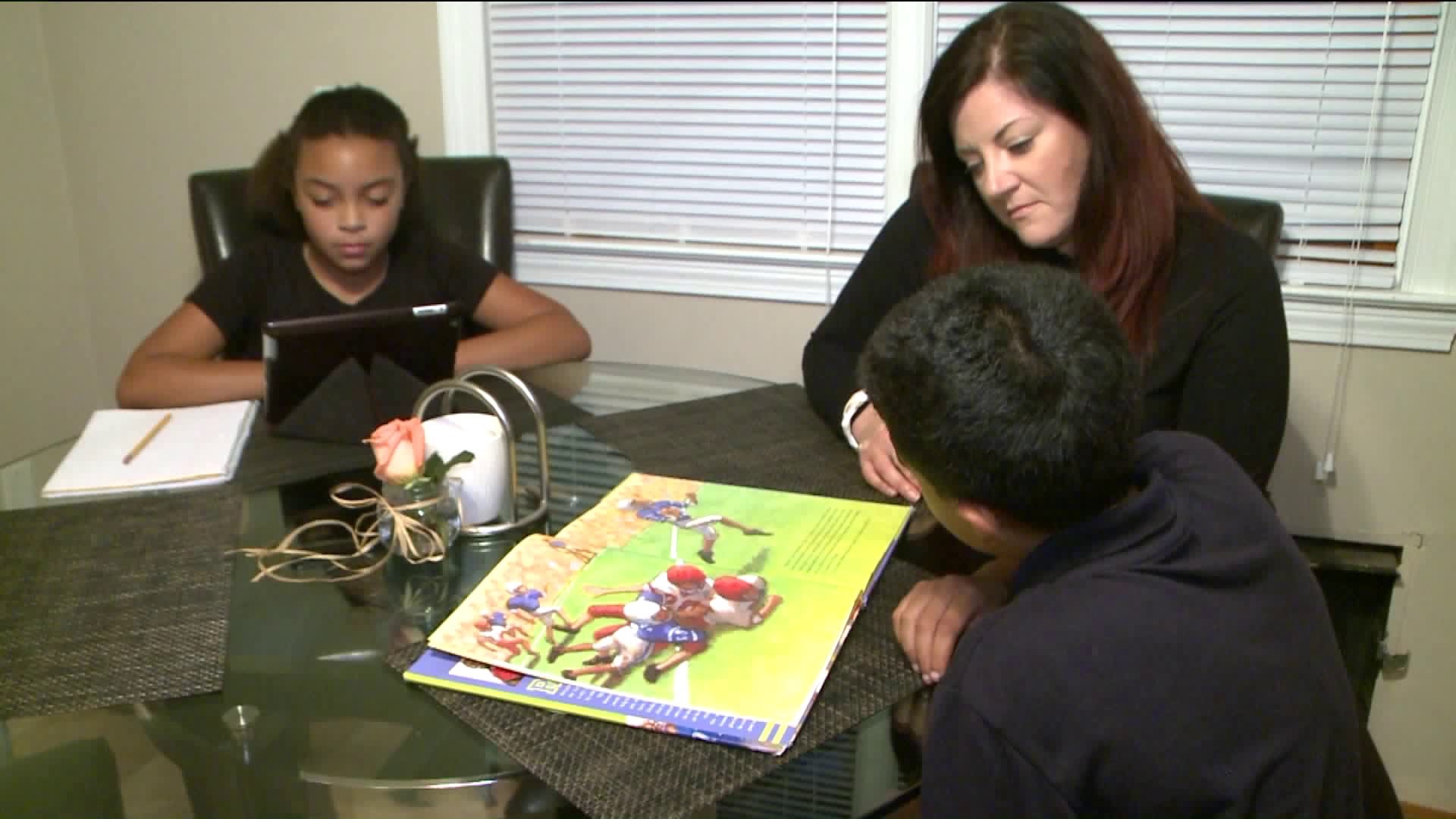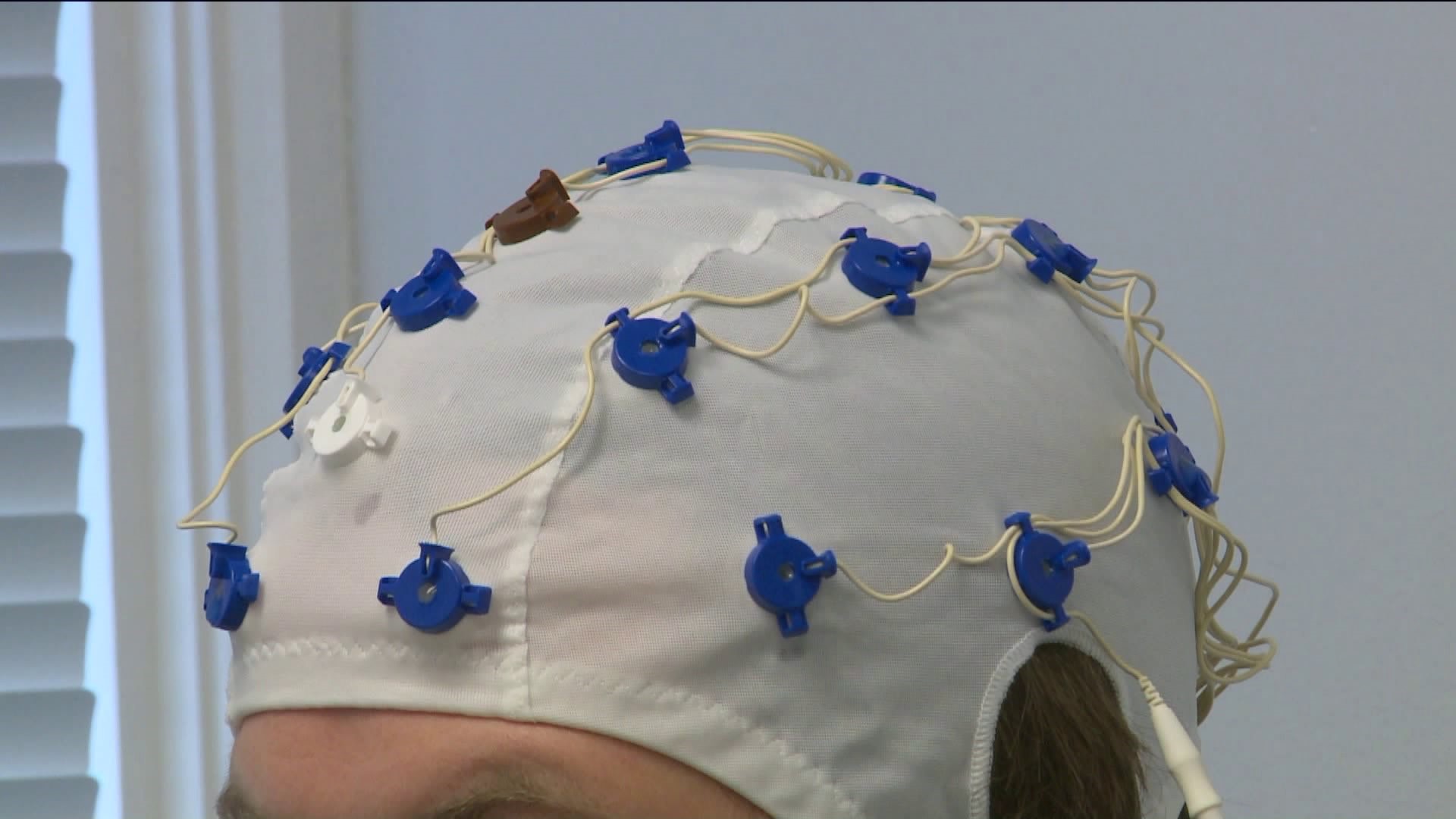NEW BRITAIN -- If you or your child has Attention Deficit Hyperactive Disorder, or ADHD, there's a good chance you're familiar with medication, however there is an alternative way of understanding and treating the disorder that’s gaining popularity in the medical community.
Recently, Tim Lammers went down to Middletown to talk with a doctor about a different way of understanding ADHD, and it's a little more nuanced than just looking at "attention".
11-year-old Rashad Jeffreys had more than just attention problems, although he showed all the classic signs of ADHD. For Rashad, things came to a head in the fifth grade.
"20-25 minutes worth of homework would take three hours," his mother Christine said, "His first report card was all, like, Ds and Fs. Low Fs."
Christine said she agreed to try medication. However when they tried it, he would be good in school but when coming home he'd be tired, his head would hurt, and he wouldn't eat. Nobody wants to see their kid like that."
Rashas was then taken to the Reynolds Clinic in Middletown.
Dr. Robert Reynolds says it's not that there’s anything inherently wrong with medication, it's that "more and more parents are looking for alternatives."
These are just some examples. In Rashad’s case, he had problems with just about all of them.
“There was a lot of yelling (laughs) and crying on both parts,” Christine said.
“This is why it’s important to identify which of the executive functions needs to be addressed. It’s not all of them,” said Dr. Reynolds.
He was also having behavior problems at home, and specific sticking points when trying to learn.
“He wasn’t the best writer, and he would be able to tell you what he wants to write, but for him to go from here (pointing at head) to writing it down, he would miss words, his sentences wouldn’t be complete,” said his mother, Christine Jefferys.
“I wouldn’t concentrate at all,” said Rashad.
Doctor Robert Reynolds of The Reynolds Clinic in Middletown said those kinds of specific problems are often problems with what's called Executive Functions.
"These are the parts of our brain that actually direct our intelligence that keep us on track, that keep us moving forward in our lives," he said.
Doctor Reynolds says that what looks like just an attention problem can often be a problem with what's called "executive functions."
Those are different skills people use to manage and organize themselves in order to achieve a goal, and people can have problems with any or all of them. These are skills like:
- Starting tasks, which often leads children to procrastinate
- Focusing or switching between tasks, which often manifests in children getting off course or distracted
- Organization and planning, which can lead a child to forget handing in finished homework, or forget that there even is an assignment
- Emotional self-control, which can lead to outbursts at home.
Doctor Reynolds has an interesting way of figuring out where the problem lies - he images patients' brains to see which parts of the brain might be overactive or under-active relative to a normal brain while doing certain tasks.
To perform that imaging, Dr. Reynolds equips a patient with a skull-cap, of sorts, that has been outfitted with brain-wave sensors. Then, the test begins.
It's a series of three-minute tests, the first requires the patient to rest with his or her eyes close. Then, the tests picks up in intensity. The next three minutes, the patient has his or her eyes open - and then, in sequence, the test continues with the patient doing three minutes of reading and then three minutes of math before one last return to three minutes of a resting state.
“It’s a little bit like going through the gears of a transmission," Dr. Reynolds said, "Do they go from first to second to third to fourth smoothly or do they get stuck? Where they get stuck gives me more insight into where they’re having trouble.”
After the tests, Dr. Reynolds can see under-performing areas of the brain because they show up on the scans in a bluish color - overactive areas appear red.
As cool as the testing is, the treatment may be even cooler.
"We actually have the child sitting there, believe it or not, playing a video game. Not with a joystick, not with a keyboard. Just with their thoughts.”
You play, not by actively trying, but by focusing on the game itself - by being in the moment without thoughts bouncing around. The idea is to bring the electrical activity in the brain back into balance - in fact, the game only progresses when that happens.
“When you go off to la-la land, you get no feedback," Dr. Reynolds said. "You stay in the moment, you get feedback.”
For example, patients are asked to focus on a hand holding a spinning cube on the screen. The more the patient stays focused on the cube, the longer it spins and the more points he or she gets. There are even high score rankings posted throughout the office.
"Once it’s adapted, it’s a little bit like learning to ride a bike," Dr. Reynolds said. "The brain never forgets it.” Rashad said he loved his therapy.
”I like that we compete against other people,” he said.
His results were dramatic.
“By the end of our 30 sessions and the end of the school year, he went from D's and F's to A's and B's," Christine said.
Rashad's outbursts diminished as well.
“He doesn’t have a lot of crazy behavior anymore," said his sister Brianna, "He’s not arguing with me as much."
Christine said that changed the whole dynamic at home.
"[Doctor Reynolds] changed our family. He gave me back my son."
The American Academy of Pediatrics rated EEG Neurotherapy as a Level One Intervention, meaning in terms of effectiveness, it's on par with medication and Behavior Therapy.
Because of that, more insurance companies are starting to reimburse more of the costs of treatment, which can often run into the thousands. However, results are highly variable from patient to patient depending on what services are needed and what type of insurance is being used.
For more on ADHD:


